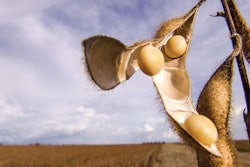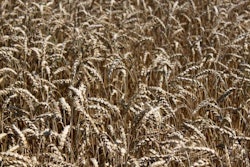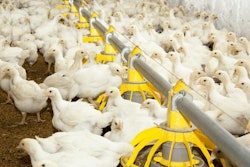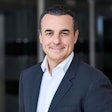Dwayne O. Andreas, who led Archer Daniels Midland Co. as its chairman from 1970 to 1999, has died at age 98.
Andreas was born in Worthington, Minnesota, on March 4, 1918, the fifth of six children of Mennonite parents. During his formative years, the family lived on a small farm outside of Lisbon, Iowa, where they raised pigs, cattle and chickens. At age nine, he began working at his father’s grain elevator, helping mix feed that was sold to local cattlemen. He briefly attended Wheaton College in Wheaton, Illinois, before leaving to manage sales for the family business, whose name changed from Reuben & Sons to the Honeymead Products Co. when it relocated to Cedar Rapids in the mid-1930s. Under Andreas’ leadership, Honeymead grew to become one of the largest animal feed manufacturers in the United States, processing 50,000 bushels of soybeans per day to meet customer demand. The family ultimately sold a majority stake in the enterprise to Cargill, where Andreas served as an executive for seven years before leaving in 1952.
After the remainder of Honeymead was sold in 1960 to the St. Paul-based Farmers Union Grain Terminal Association, Andreas served as the association’s executive vice president until members of the Archer and Daniels families invited him to become a minority shareholder in Archer Daniels Midland Co. He was elected the company’s chairman and CEO in 1970. At that time, ADM employed 2,948 people and owned 40 processing plants, primarily throughout the Midwest. When Andreas stepped down as chairman of ADM’s board of directors in 1999, the company employed more than 23,000 people worldwide and owned 274 processing plants around the world. ADM’s market capitalization was 126 times greater than before he was elected chairman and CEO in 1970.
“During his lifetime, Mr. Andreas passionately believed in agriculture’s ability to address hunger among the world’s poor,” said Juan Luciano, ADM’s chairman and CEO. “He used his deep understanding of global markets and extraordinary business acumen to support policies and programs that helped food reach people in resource-scarce regions. After President John F. Kennedy appointed him to the American Food for Peace Council, Mr. Andreas was quoted saying: ‘Food knows no boundaries. We are in the international age of agriculture.’”
Together with his close friend Hubert Humphrey, Andreas met world leaders such as Konrad Adenauer, Harold Wilson, Charles de Gaulle, Josip Tito, Sukarno and David Ben-Gurion. To all he encountered, Andreas carried a simple, powerful message: “The food business is far and away the most important business in the world. Everything else is a luxury. Food is what you need to sustain life every day. Food is fuel. You can’t run a tractor without fuel, and you can’t run a human being without it, either. Food is the absolute beginning.”
As one of America’s leading spokesmen for agriculture, Andreas met with every American president from Harry Truman to Bill Clinton. During the Cold War, he was a strong advocate of closer ties between the United States and the Soviet Union, and as chairman of the U.S.-USSR Trade and Economic Council, Andreas befriended Soviet agriculture minister Mikhail Gorbachev. They remained close after Gorbachev became president. Andreas also worked with Boris Yeltsin. He helped bring Yeltsin together with President Nixon, and Gorbachev together with President Reagan, during times when government-to-government contacts were rare.
Andreas served as chairman of the Economic Club of New York, chairman of President Reagan’s Task Force on International Private Enterprise, and vice chairman of the Woodrow Wilson International Center for Scholars. He also supported many charitable causes, including the Anti-Defamation League of B’nai B’rith, Mother Teresa Missionaries of Charity, The Boys and Girls Clubs of America, and The American Red Cross.














